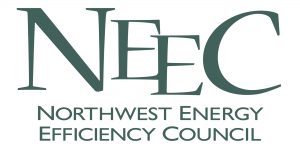The dust has settled on the 2009 Oregon legislative session. Two bills of significance for the energy efficiency industry passed and were signed by the Governor. The following was excerpted from the Oregon Citizen’s Utility Board (CUB) newsletter:
HB 2626 and HB 2180: HB 2626 (Energy Efficiency and Sustainable Technology Act) was introduced to provide a series of pilot projects intended to deliver increased energy efficiency services to residential customers and businesses. By making financing available to implement efficiency projects, particularly encouraging the use of utility on-bill financing as a payback mechanism for the upfront loans, a strong source was found to fund the efficiency work. HB 2180 was introduced to enable local governments to establish "local improvement districts," or LIDs, to fund energy efficiency projects in particular areas. HB 2626 was the subject of significant negotiations by a wide range of parties early in the session. Eventually it became a consensus bill. HB 2180 went through some minor adjustments but faced some bumps in the Ways and Means process. HB 2180 was ultimately folded into HB 2626, which passed with overwhelming majorities.
SB 79 – Building Codes and Energy Performance Score: The bill as introduced was designed to do two things. First, it intended to create a system of "reach codes" within the building codes system that would adopt two sets of codes at a time: a new building code that met national efficiency standards and a "reach code" with stricter efficiency requirements that would be the main code in three years’ time. This would create an incentive for building designers and builders to "push the envelope" in terms of adopting efficiency measures earlier than current codes because they would have the certainty about what the code would eventually be. Second, the bill sought to establish a system of providing an "energy performance score" to a residence or commercial building at the time of sale, much like a car has a mileage rating. The intent of the energy performance score was to (1) provide an incentive for sellers to upgrade their buildings and use the added efficiency as a selling point, and/or (2) enable buyers to negotiate on price based on potential efficiency work they might undertake after buying a building. SB 79 passed with the "reach code" language but not the energy performance score provisions, although there will be a task force that will look at establishing such a system in the future.
Governor Kulongoski did veto two bills dealing with renewable energy that had passed in the legislative session. HB 2940 and HB 2472. HB 2940 added existing biomass facilities to the state’s RPS provisions and HB 2472 would have reduced the money from Oregon’s Business Energy Tax Credit for renewable projects over 10 megawatts.
